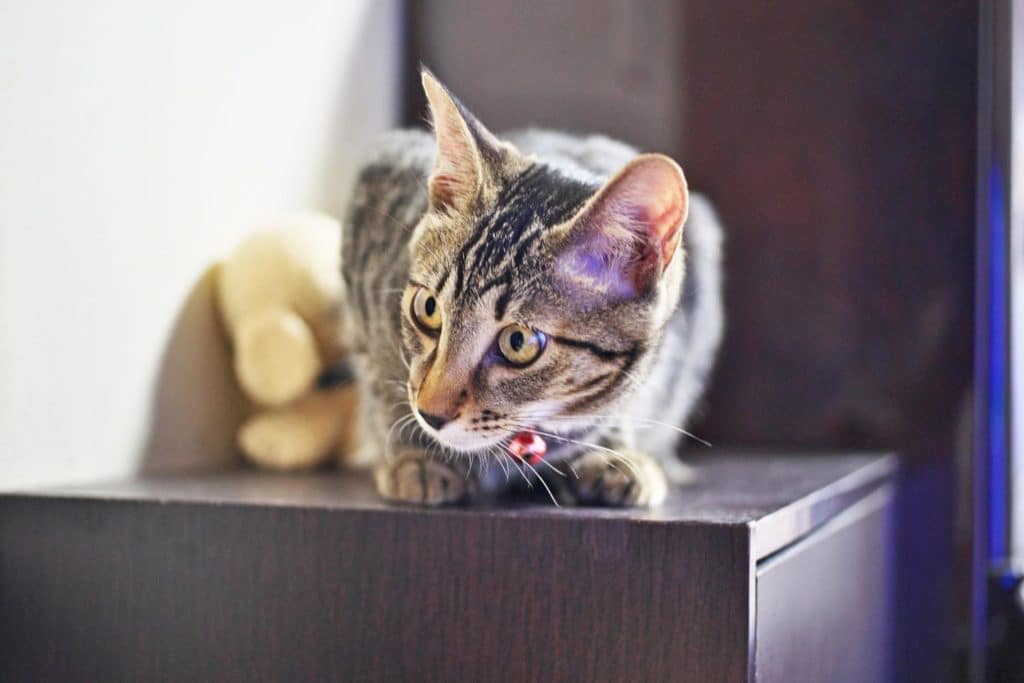
Today there is a craze for organic and naturally-sourced food among the human population. It has started to reflect among the pet parents that love their feline friends and take care of their health. Organic describes how any animal or crop has been raised, grown, or handled.
It is defined that organic food products must be raised or grown on land that is free from any chemical pesticides for 3 years. Moreover, organic livestock needs to be fed with organic feed minus any hormones or antibiotics with access to any outdoor pasture for feeding.
The AAFCO regulates this. As per consensus, the best organic cat food being fed to a cat can be healthier than the regular choices available in the market.
| Image | Brand | Price | Prime | Buy |
|---|---|---|---|---|
 Top Top | Castor & Pollux | PrimeEligible | Buy Now | |
 Top Top | Purina Beyond | PrimeEligible | Buy Now | |
 Top Top | Castor & Pollux | PrimeEligible | Buy Now | |
 Top Top | Tender & True | PrimeEligible | Buy Now | |
 Top Top | Tender & True Pet Nutrition | PrimeEligible | Buy Now |
- What are the Ingredients of Organic Cat Food?
- How are Organic Ingredients Obtained?
- Is it Made in the same Facility?
- Do I Need to Offer Other Food With Organic?
- Does Organic Food Help With a Cat's Weight Management?
- Can I Offer Organic Food to Older Cats?
- Is it Useful for Kittens?
- Which Cat Foods Cannot Be Considered Organic?
- Conclusion
In case you are looking for food for a kitten then our resource best cat foods for kittens help you to choose the right one, which can provide the required nutrition to your little furkid.
What are the Ingredients of Organic Cat Food?
Organic feline food is manufactured from ingredients from farmlands without pesticides for 3 years or more. With no pesticides involved, your cat doesn’t have any risks associated with toxins or allergens that make their way into its body.
These are the basics of organic cat food. However, the food also needs to be nutritious, fresh, and make up for a balanced diet. Also, remember that several brands that list themselves as organic might not be organic.
Some manufacturers are sly enough to quote the prime ingredients as organic while other ingredients such as the fillers might be inorganically acquired. So, make sure you check for the authenticity of the product.
Most generic cat food brands use animal by-products to manufacture their food. This can be unhealthy for the cat, depending on where it was sourced from and the animal’s condition. In addition, if the animal had any disease that it died from, it can be transferred to the cat. Organic cat food takes care of this problem.
Moreover, organic food brands contain healthy and quality-checked ingredients to help your cat maintain a balanced weight.
How are Organic Ingredients Obtained?
Most brands connect with local and certified farms that adhere to the mandates put in place by the authorities for the cultivation and raising of organic food. Farmers who practice organic farming emphasize using earth’s renewable resources & practice methods that help conserve water & soil.
So, you don’t just help your cat stay healthy but also contribute to the betterment of the environment. Organic poultry eggs, meat, & dairy products are acquired from farm animals that aren’t given any growth hormones or antibiotics.
Cat food certified organic is produced by excluding methods like genetic engineering. Therefore, it doesn’t contain GMOs or Genetically Modified Organisms that tend to be a big part of regular cat food brands. Simply put, organic standards for cat food allow the farming and growing of organic products that do not have any synthetically manufactured ingredients.
Is it Made in the same Facility?
No, organic cat food isn’t manufactured in the same facility as the inorganic ones. This is done to avoid any possibility of cross-contamination with synthetic ingredients.
Moreover, organic food and farm animals are raised in an environment free from any synthetic chemicals, manures, pesticides, growth hormones, etc.
Just because your cat food mentions that it comes from a local source, it doesn’t necessarily have to be organic. Your local farmer could use just as many fertilizers and chemicals for the production process.
The only thing is that locally acquired ingredients are fresher than those imported from a far-off place that requires additional preservatives to keep the food fresh before it reaches the destination.
Do I Need to Offer Other Food With Organic?
No, you do not have to offer any other food to your cat while they are on organic food. Most brands dedicated to organic food production ensure that your cat gets access to a balanced diet.
Moreover, organic food has a higher nutritional quotient than chemically fertilized ones.
It contains many antioxidants, which are lost when the food is inorganically produced. Conventional cat food choices might also be a big reason for your cat to be allergic to certain ingredients.
Organic cat food helps decrease the chances of any allergies occurring in your cat’s body. For example, preservatives added to conventional cat food items could cause your cat to show up to specific allergies. Organic food doesn’t have such preservatives, so it is safe for your cats, especially for sensitive ones.
You can undoubtedly mix organic and non-organic cat food.
However, doing this can negate the benefits of organic cat food. Another thing you might have to keep in mind is that organic cat food tends to be a lot more expensive than conventionally-manufactured ones.
However, the benefits they bring for your feline friend are sure worth it. Moreover, organic food can retain the original taste and juiciness lost in conventional food sources due to preservatives. So, if your cat is a picky eater, you might see them loving organic food due to the taste and freshness.
Does Organic Food Help With a Cat’s Weight Management?
Organic or in-organic, when your cat has access to a balanced diet acquired from a quality-controlled source, they can easily maintain their weight. However, other ingredients in conventional cat food might impact your cat’s weight.
When given to your pet for a long duration, preservatives and additives-based food can affect the way it puts on weight.
It can also lead to several diseases such as thyroid, diabetes, and other issues that can lead to obesity when left unchecked. Make sure you provide your cat with food options high in protein content.
Protein acquired from organic sources ensures that your cat maintains and builds muscle mass.
More muscle mass helps contribute to faster weight loss and helps maintain the ideal body weight for your cat. Regardless, the key is to maintain a balanced portion equally divided into multiple parts and served throughout the day.
Can I Offer Organic Food to Older Cats?
Yes, you can offer organic food to older cats. It is healthier and more nutritious as compared to traditional food choices. Old cats thrive on good-quality food, and an organic diet is the best you can offer them at any point in life.
Old cats often rely on medications and other prescription dietary choices. But, unfortunately, the chemicals present in conventional food might react with your cat’s medication and cause-specific allergies. So, it is better to offer them organic food that doesn’t contain artificial preservatives, chemicals, fertilizers, etc.
At first, your cat might find it challenging to transition from its regular diet to an organic one. However, the key is to bring in the change slowly and steadily. Start by mixing 1/4th of the organic food with regular food and gradually increasing the quantity as days pass.
It will help the cat adapt to these dietary changes. Moreover, you will notice a change in their energy levels, and your cat is more active than ever.
Is it Useful for Kittens?
Kittens need the highest amount of energy, given that they are growing and have a strong metabolism. It helps them burn down a lot of fat with ease. However, this doesn’t mean you can go all-out when feeding them.
Try to maintain a balance of portions even if you are feeding them organic cat food.
Which Cat Foods Cannot Be Considered Organic?
When picking an organic cat food for your pet, make sure you check for organic certification. For example, if you live in the United States, your cat food would be approved by the USDA or the United States Department of Agriculture.
Unless you notice a USDA Certified label, you cannot ensure that the cat food is genuinely organic. Moreover, you can also see the number of organic ingredients used in cat food in the form of a percentage.
Therefore, you can choose options that have 95 percent or above organic ingredients to truly reap the benefits of an organic diet for your cat.
Even low-form pesticides present in the list of ingredients do not count as organic cat food. So, make sure you check for the same. Also, synthetic fertilizers added to the growing medium, such as soil, don’t count as organic.
Animals used in cat food are given growth hormones to speed up the growth process. Therefore, it cannot be categorized as organic cat food. Even the antibiotics used to take care of any disease present in the animal make it a non-organic ingredient for cat food.
Recommended Resources for You
Conclusion
While purchasing organic cat food, pay attention to the label and research the company. Selecting the right cat food can be confusing, so contact your veterinarian to discuss if organic food is the right choice for your pet.
Regardless of what you feed your cat, the key is to obtain it from a trusted source with proper certifications.
Do not blindly believe a brand stating that its products are organic. Instead, read the label thoroughly and decide what is right for your cat.
